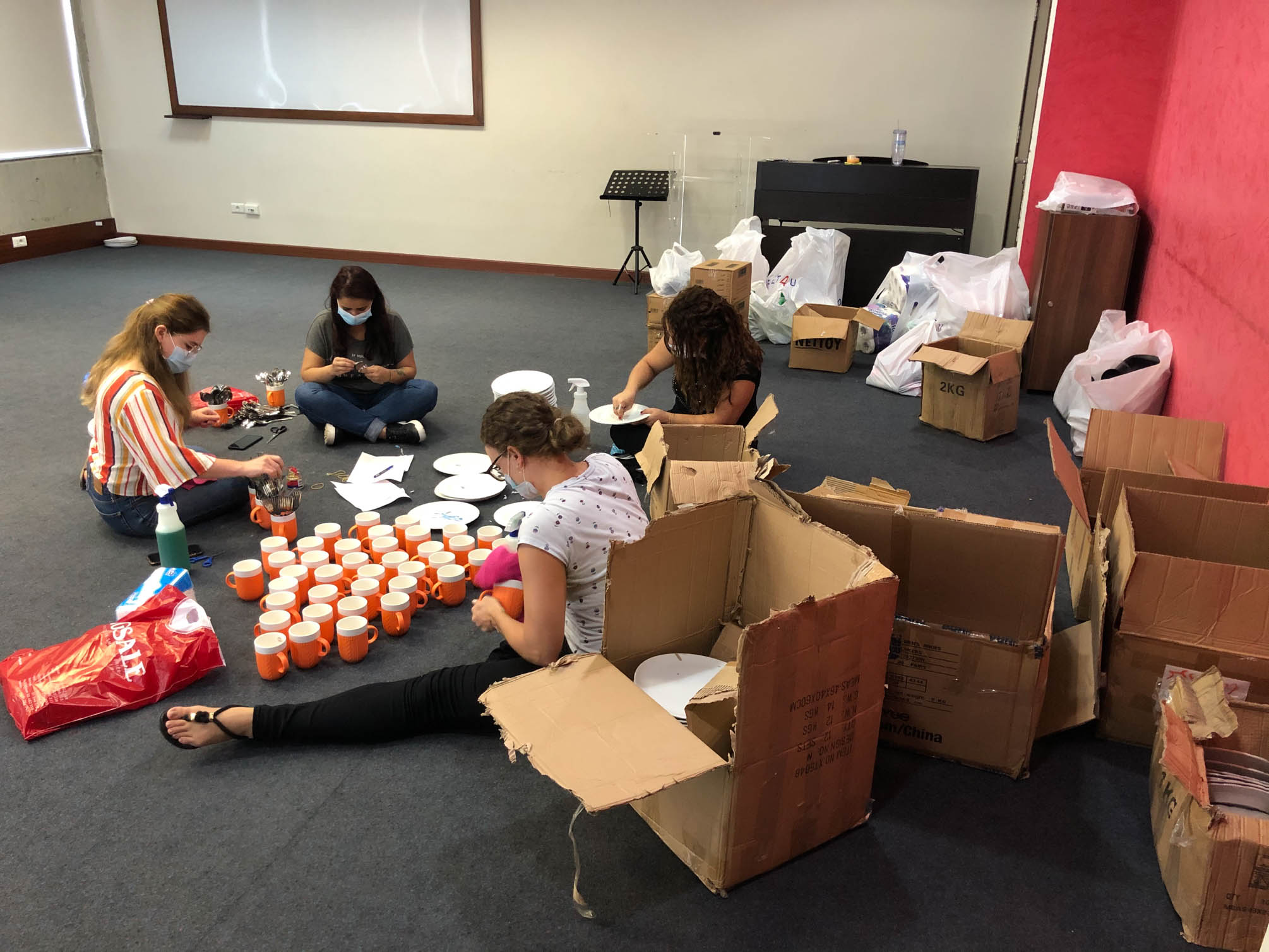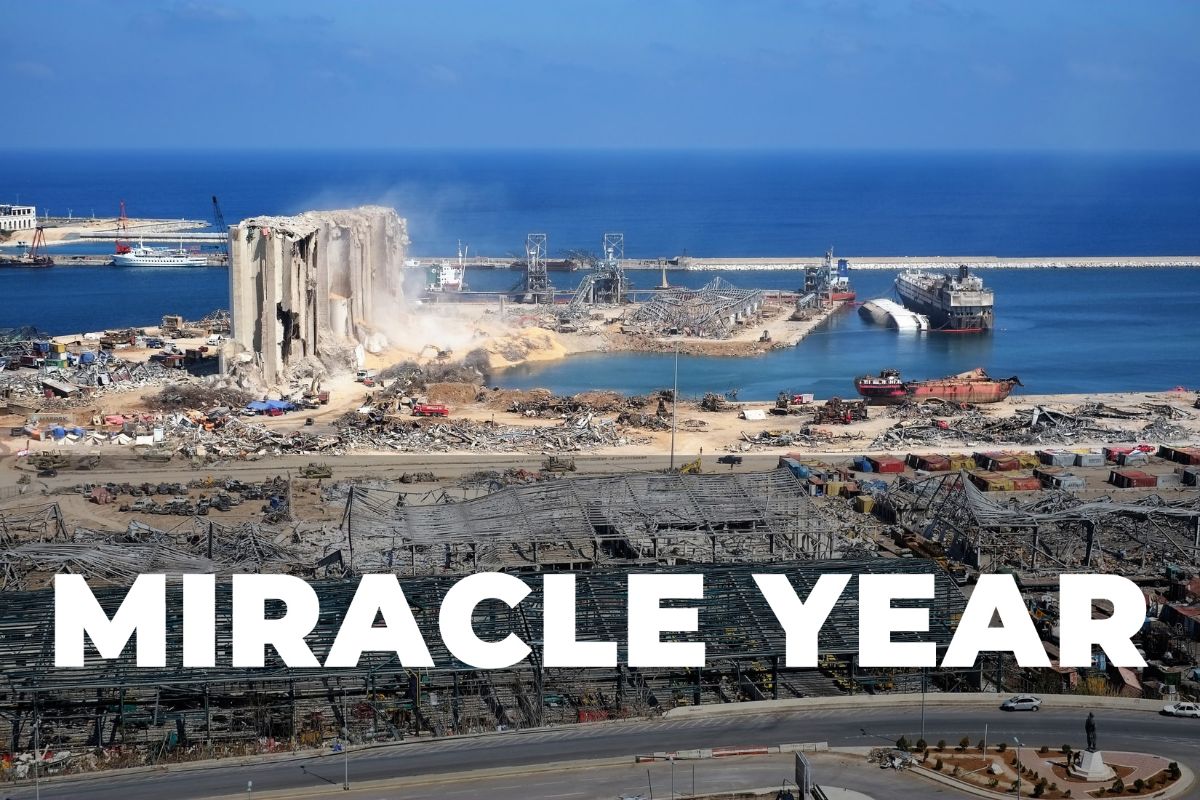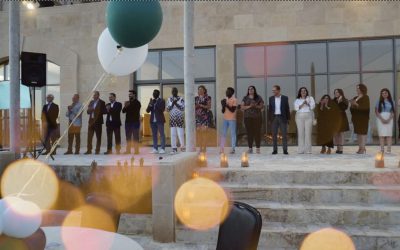Miracle Year
COVID-19 has put the Bible colleges and theological schools we are affiliated with in a position where they must rethink how they ‘do business’. Arab Baptist Theological Seminary (ABTS) in Beirut, Lebanon, is a case in point.
CRISIS UPON CRISIS
After dealing with waves of Syrian refugees flowing into and through Lebanon, the country descended into its own political unrest (mass protests, strikes, conflict, corruption, incompetent leadership), which led to a severe economic downturn and inflation. Then came COVID. The impact was huge. Local revenue was drying up and fundraising was difficult due to lack of travel. ABTS was tracking to have its biggest deficit ever. They even wondered if they would survive.
And then, as is if things were not challenging enough, Beirut suffered a massive megaton explosion destroying important infrastructure, homes and businesses. Thousands lost all they had, and the City had not seen this level of dire poverty in decades.
HANDS AND FEET OF CHRIST
After the explosion, with dorms empty on account of COVID school closures, ABTS (with the help of local churches) cleaned, painted, and made space for 82 people who had lost their homes. Now, a year later, due to the incredible work of God’s people in Beirut and a flood of financial assistance from friends worldwide, not only have those staying in the dorms been able to return to their repaired and replenished homes, more than 300 people have been shown the practical love of Christ. One woman shared how for the first in a long time she was able to sleep for the whole night. “I finally understand what this peace is that you were talking about,” she said. As Elie Haddad, President of ABTS expressed, the harsh realities of the time have proven to be fruitful soil for the Gospel.
![Renovating the Building -ABTS staff[3]](https://resourceleadership.com/wp-content/uploads/2023/10/Renovating-the-Building-ABTS-staff3.jpg)

PARADIGM SHIFT
Meanwhile, the Seminary was seeking God for direction on how to carry on. They had already been noticing how the political borders were becoming increasingly restrictive. The virus was the final nudge to make a paradigm shift. They decided to shift from a college that brings students to Beirut to being a college that reaches students within their local contexts.
Thankfully, much of the infrastructure was in place. They transitioned from in-person classes to a hybrid model with online education and library access, augmented by 2 weeks of on campus teaching. This allowed citizens from many more nations to enroll in their programs while staying engaged in their respective ministries, without having to move to Lebanon and face the hassle of acquiring travel documents, filing residency permit requests, and enduring the scrutiny of Lebanon’s immigration services. As a result, students from the Arabian Gulf, North Africa, and the Middle East, as well as Arab diaspora in western Europe, North America and all over the world, have been able to enroll in ABTS’s programs.
![Students studying online (3)[1]](https://resourceleadership.com/wp-content/uploads/2021/06/Students-studying-online-31.jpeg)
![Students studying online[3]](https://resourceleadership.com/wp-content/uploads/2021/06/Students-studying-online3.jpeg)
This transition has not been without its challenges. They wrestled with how to keep a focus on the spiritual formation of students into the character of Christ – a high priority at ABTS. Though faculty miss the interaction with students on campus, they look forward to mentoring them in their own context. And they are now working more closely with local churches in preparing students for the challenges of ministry, which they also deem a change for the better.
MIRACLE YEAR
By catering to the needs of students beyond their borders, in 2021 ABTS saw the highest enrollment of Lebanese students in its history! And now, rather than an average total enrollment of 35-40 they can accept up to 120 students in the core program, and that is alongside the fully online Certificate program that enrols around 150 students. And as extra evidence of God’s grace and provision, ABTS ended their fiscal year in the black! They have called 2020 ‘The Miracle Year’.
![First Zoom meeting with New Students[2]](https://resourceleadership.com/wp-content/uploads/2023/10/First-Zoom-meeting-with-New-Students2.jpg)
First zoom meeting with new students
LEADERS NEEDED
President Elie Haddad writes: “It takes a different kind of church to serve this region at a time like this: a church that has a deep understanding of the multi-faceted Gospel, a gospel of word and deed; a church that is deeply in love with God, with his mission, with his people and with the peoples of the region. … And this kind of church requires a different kind of leader. It requires an apostle and prophet, not just a pastor. It needs leaders who are able to read and understand the signs of the times and who are able to educate and mobilize their congregations to respond accordingly. It needs thoughtful and reflective leaders who are able to connect the Bible with the needs of their communities.”





0 Comments